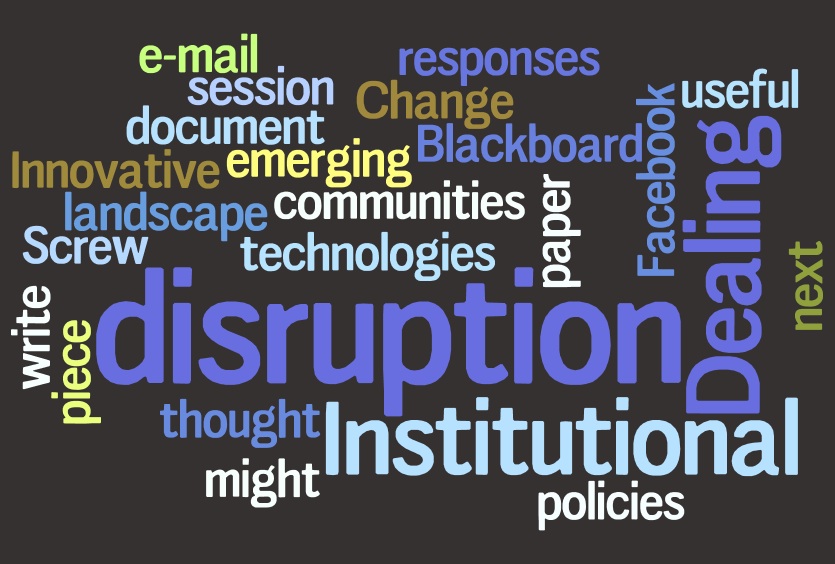Back to the blog
Back to the blog after far too long travelling around England and Wales. Amongst a series of meetings, I have been at the fantastic #Thoughtfest09 workshop in Salford and at the Jisc Users and Innovations programme Next Technologies in Practice Conference in Loughborough. there were so many ideas and so many great people I met I really do not know where to start.
#Thoughfest09 was particularly good in that we got to do and try things. Doing things included sessions on podcasting and mixing music, on producing digital cartoons and playing the wonderful Argosi game (my group came last 🙂 ). And great project demos including the Jisc Users and Innovations funded Awesome and (as it is now called) the Manchester PLE project. The other factor was size. The venue limited us to 30 or so participants and that allowed everyone to actively contribute to the workshop.
The Next Technologies in Practice Conference had perhaps less interactivity but once more featured an array of excellent projects. The Users and Innovations programme projects are now coming to maturity and the focus on user centred development can be seen in the imagination and creativity of the projects.
A number of common themes are emerging. Firstly, we are now seeing the emergence of mature and lightweight user centred Web 2.0 and social software applications for learning. These applications break the mode of traditional approaches to e-learning. In short they are disruptive. This Wordle based on tweets from from the second day of the Jisc conference provides a pretty accurate illustration of the issues.
And whilst the edupunk approach remains attractive for small scale implementation and trialling, there is an increasing discussion on approaches to institutional innovation and change.
Gwen van der Velden, Director of Learning and Teaching Enhancement at the University of Bath in a presentation entitled “Engaging the sector: An institutional perspective on raising awareness to embedding new and emerging technologies” provided an overview of many of the issues to do with institutional change. Institutions, she said, are “devolved, centralised, bicameral, hierarchical, collegiate, managerial, entrepreneurial, bureaucratic, research intensive, teaching minded, ‘customer focused.'”
Popular pitfalls in project development were
- We need to train staff before they use it
- It doesn’t talk to the student data system/ staff data system/ etc
- Depending on middle managers
- Resource hungry development
- Nefarious proposals
- Solving non-existent problems
The issue of staff training raised considerable discussion on Twitter. If true, it probably condemns most e-Portfolio applications to the dustbin!
Gwen posed the following questions for project developers
- What is your strap line?
- Why would I support you?
- What problem do you solve for me?
- What evidence do you have to show me that your solution works?
Whilst this list might be seen as coming from an intsitional management perspective, it is not bad as a rubric for rapid and innovative project development.
Probably the biggest hit of the two events was the presentation by Carlos Santos and Luis Pedro from the University of Aveiro in Portugal. As Josie Fraser reported they “are moving away from the managed learning system model and providing a supported Personal Learning Environment (PLE) service linking in University functionality with member selected and supported web 2.0 distributed activity.” As Josie says “Why is this amazing? The global edtech community have been talking about how institutions can engage with learner-centered PLEs for a while now, but Aveiro and the SAPO team are putting it into practice. Campus wide. In September.”
This will definitely be one to watch. But right across education things are getting interesting as innovation and social software allied to new approaches to learning challenges the old ways of doing things,


Thanks Graham!
It was a pleasure to meet you and all other #TF09 people.
We’ve started to write in English at SAPO Campus blog (http://labs.sapo.pt/ua/sapocampus) 😉
Thanks Graham for your words and encouragment.
Together with the new blog, a new twitter account: @sapocampus 🙂
Hope to see you soon!